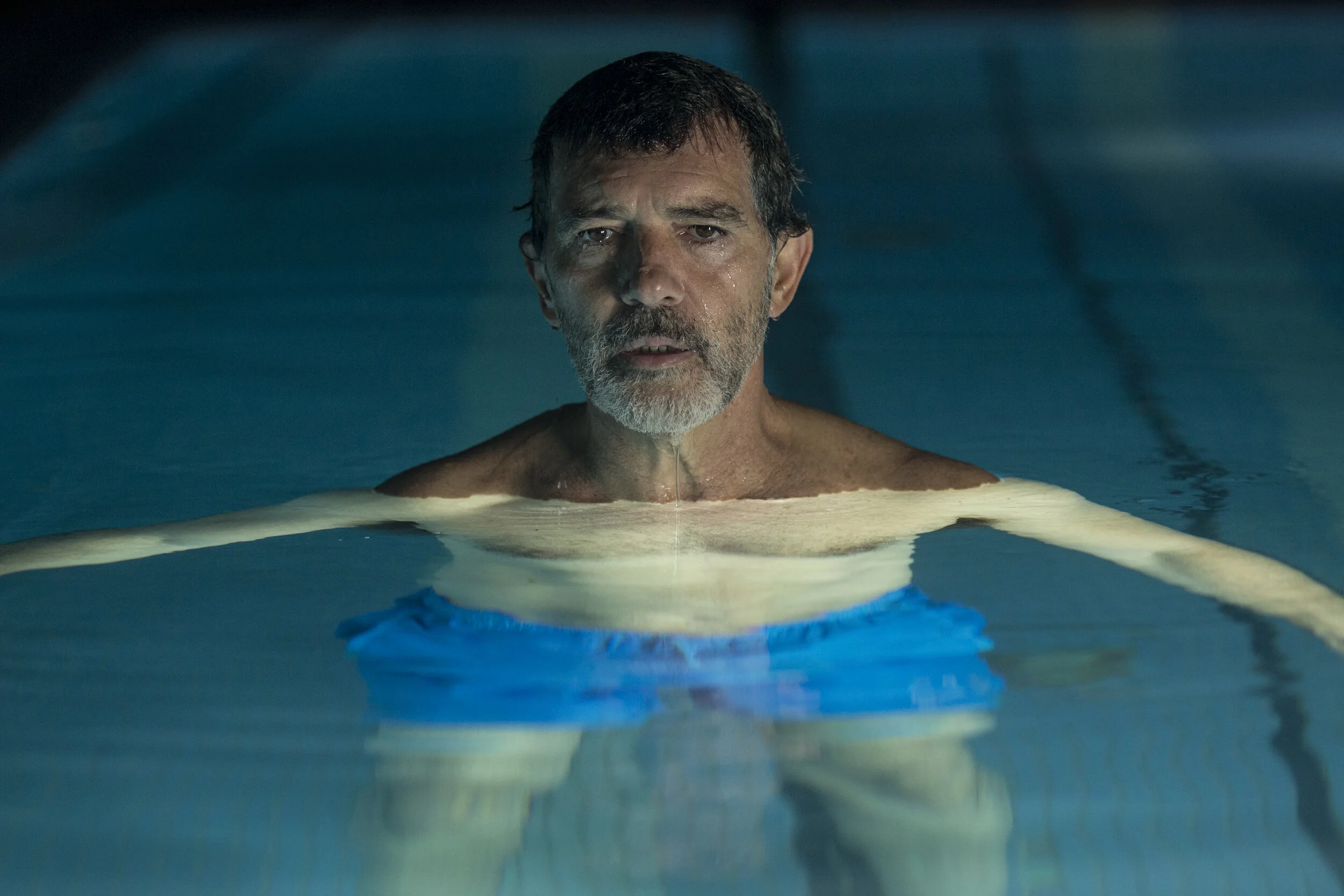Pain and Glory: An older Almodovar dials it down a notch for a touching and evocative redemption tale
By Jim Slotek
Rating: A
An aspect of legendary directors is that they remain defined by their best work, usually at the height of their powers and brash youth.
So it is with Pedro Almodóvar, who crashed the international film party in the ‘80s with provocative, dark comedies like Tie Me Up! Tie Me Down! and the Oscar-nominated Women on the Verge of a Nervous Breakdown.
Pain and Glory – his meditative and sensitive quasi-autobiography about a filmmaker hobbled physically and creatively – retains a star of those two films, Antonio Banderas, who is himself a leading-man at an awkward age.
Read our interview with Antonio Banderas
The result is what many are calling Almodovar’s best film (and Banderas’s career best performance). It certainly is the most candid film Almodovar could be making at this point in his career, along the soul-baring lines of Fellini’s 8 ½.
A physically drained and creatively blocked filmmaker (Antonio Banderas) ponders mortality in Pain and Glory
But even when striking a very personal, melancholy note, Almodovar retains an eye for absurdity. Many people can claim to come from poverty. But how many lived with their family in a cave, as Salvador (Banderas) recalls in one of myriad flashbacks to his childhood (in which his mother is played by Penélope Cruz)?
In the present, we meet the beat-up physical wreck that is Salvador at the moment when he is about to be feted for the film legend that he is. He is basically being held together by his assistant Mercedes (Nora Navas) and he is disinclined to join in the celebrations. In a clever animated rundown of his diagnoses, we learn he suffers from seemingly everything, including depression, asthma, an apparently unsuccessful spinal fusion operation and a closure in his throat that makes him virtually unable to eat.
Add to that a creative block the size of an elephant that has kept him from his life’s calling, filmmaking, for years.
But the unwelcome attention has a silver lining, in that it forces Salvador to reunite with his former leading man of choice, Alberto (Asier Etxeandia), from whom he has been estranged for 30 years. (In an odd parallel, Almodovar and Banderas did not work together for 22 years, though they were not estranged).
Alberto’s longtime drug-addiction was not the only reason for their falling out. But in the short-term, their reconnection sees Salvador try smoking heroin for the first time, providing brief but welcome solace from his physical and mental woes.
It is a testy reconnection, nonetheless, with public shouting (in one case via Skype), but it leads to the unearthing on a hard-drive of a manuscript Salvador had been hiding, which treads much the same ground as the movie we’re watching.
Events have a tendency to reconnect memories in Pain and Glory. And Alberto’s desire to turn Salvador’s memoirs into a stage monologue leads to a reconnection with Federico (Leonardo Sbaraglia), the onetime love of his life, whose relationship rupture was so complete that he became a “straight” husband and father in America.
In evocative and understatedly emotional scenes, carried out with a mature grace by Banderas, we come to a connection of how we get where we are, and what holds us back from what we dream of becoming. Salvador bears his plight with dignity, and he and Banderas leave us with a character and a message that stays with you long after you’ve left the theatre.
Pain and Glory. Written and directed by Pedro Almodóvar. Starring Antonio Banderas, Asier Etxeandia and Leonardo Sbaraglia. Opens Friday, October 25 at the Varsity Theatre in Toronto.

